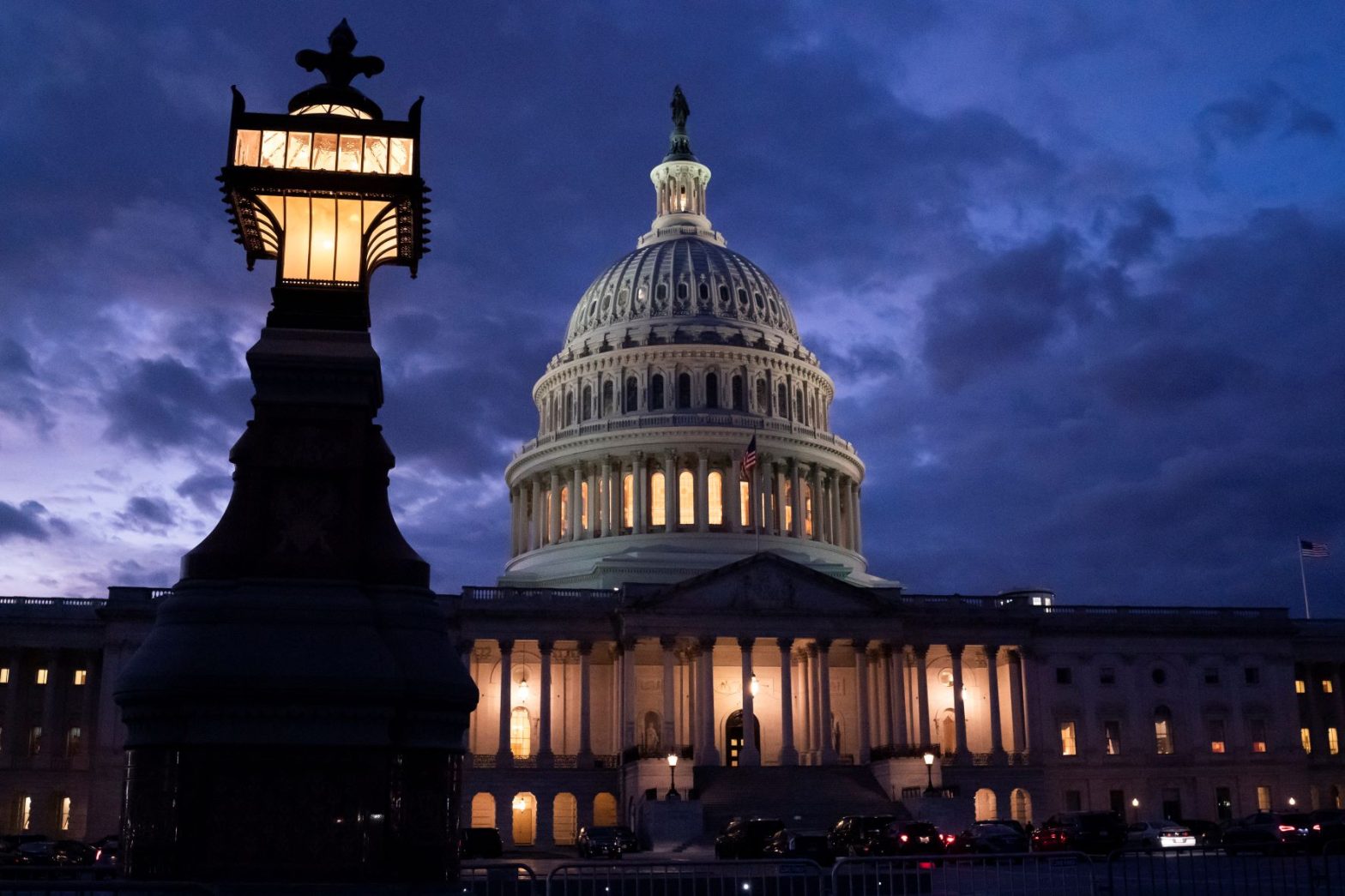Senate Passes Stopgap Funding Bill, Avoiding Shutdown

WASHINGTON — The Senate passed a stopgap spending bill Thursday night that ended the threat of a short-term government shutdown this weekend and will keep the government running through Feb. 18, 2022.
The vote in the senate came just hours after the House approved the measure 221-212, and after a deal was reached to allow a vote to defund President Joe Biden’s vaccine mandate for large employers.
In return for the vote, which failed, Republicans agreed not to block a vote on the continuing resolution.
The Senate ultimately approved the measure by a vote of 69-28.
In the end, where Rep. Adam Kinzinger, of Illinois, was the only Republican to vote for the resolution in the House, 19 GOP members supported the spending extension in the Senate chamber.
The measure now goes to President Joe Biden to be signed into law before he leaves for a weekend at Camp David later today.
After Thursday night’s vote, Senate Majority Leader Chuck Schumer appeared somewhat relieved as he said “I’m happy to let the American people know the government remains open.”
Later he said he was happy “cooler heads prevailed” and the measure moved forward.
“The government will stay open and I thank the members of this chamber for walking us back from the brink of an avoidable, needless and costly shutdown,” said Schumer.
It was early Thursday morning that congressional leaders announced they had reached an agreement to keep the government running at approximately current spending levels, for just shy of three months.
The measure also provides $7 billion to aid Afghan evacuees. The additional funding includes about $4.3 billion for the Defense Department to care for evacuees on military bases; $1.3 billion for the State Department; and $1.3 billion for a division of the Department of Health and Human Services to provide resettlement and other services, including emergency housing and English language classes.
Rep. Rosa DeLauro, D-Conn., chairwoman of the House Appropriations Committee, said the passage of the measure will afford lawmakers more time to resolve their differences and approve a longer term, omnibus spending package next year.
“While I wish the Feb. 18 end date were earlier, and I pursued earlier dates, I believe this agreement allows the appropriations process to move forward, toward a final funding agreement that addresses the needs of the American people,” she said.
Sen. Patrick Leahy, D-Vt., chairman of the Senate Appropriations Committee, agreed, saying Thursday night’s vote wasn’t a victory for one side or the other, but merely a way of “buying time” to complete negotiations on a new budget.
As it stands now, the budget framework in place is essentially the same one that was in place at the end of the Trump administration.
“Since May, I have called for bipartisan, bicameral negotiations with the White House to establish toplines,” Leahy said. “ On Oct. 18, Senate Democrats released a comprehensive opening offer in an effort to jumpstart these negotiations and let our Republican colleagues and the American people know our values. Since then we have been met with nothing but deafening silence.
“Further refusal to meet at the negotiating table will only undermine national security, our ability to invest in American families, and our capability to respond to the coronavirus and its emerging variants,” he continued. “This agreement gives us time to resolve our differences and do our work on behalf of the American people.”
Despite the generally positive feelings on the Hill after Thursday night’s vote, the federal government’s immediate financial concerns have not been resolved.
According to a Bipartisan Policy Center, the United States could still default on its credit obligations sometime between Dec. 21 and Jan. 28 if Congress doesn’t raise or suspend the debt limit.
The nonpartisan think tank’s warning Friday morning also suggested the actual deadline, or what it refers to as the X-date, will likely come earlier in that window rather than later.
As previously reported in The Well News, Treasury Secretary Janet Yellen has repeatedly warned lawmakers that the United States could be unable to pay its bills soon after Dec. 15.
Earlier this week, she reiterated her concerns during testimony before the Senate Banking Committee.
“I cannot overstate how critical it is that Congress address this issue. America must pay its bills on time and in full. If we do not, we will eviscerate our current recovery,” Yellen said.
In October, Congress raised the debt limit by $480 billion, an amount the Treasury Department estimated would allow the government to continue borrowing through early December.
The Bipartisan Policy Center said that there is additional uncertainty surrounding the debt limit this year because of the pandemic and the various economic relief programs that are still ongoing.
Complicating matters further is the Treasury Department’s Dec. 15 deadline to make a $118 billion payment to the Highway Trust Fund.
As also reported in The Well News, the Congressional Budget Office said earlier this week that the Treasury might run out of cash by the end of December if Congress fails to act.
“If the debt limit remained unchanged and if the Treasury made that transfer in full, the government’s ability to borrow using extraordinary measures would be exhausted soon after it made the transfer,” the CBO said. “In that case, the Treasury would most likely run out of cash before the end of December. If that occurred, the government would be unable to pay its obligations fully, and it would delay making payments for some activities, default on its debt obligations or both.”
The CBO suggested, however, that Treasury Secretary Yellen might be able to defer some Highway Trust Fund payments, which were mandated in the recently passed infrastructure law, potentially staving off a potential default until sometime in January.























